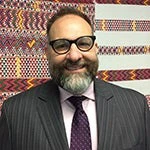May 17 is the International Day Against Homophobia, Transphobia and Biphobia, or IDAHOT.
Why should we care about IDAHOT? Because sexual orientation and gender identity, or SOGI, matters.
Here are three things we need to know about SOGI:
First, SOGI inclusion is about zero discrimination .
Despite some legal and social progress in the past two decades, LGBTI people continue to face widespread discrimination and violence in many countries. Sometimes, being LGBTI is even a matter of life and death. They may be your friends, your family, your classmates, or your coworkers.
Second, it’s about fighting exclusion.
Where there is discrimination, there is exclusion. As a result, many LGBTI people suffer lower educational attainment, higher unemployment rate, and a lack of access to adequate housing, health, and financial services.
Third, it’s about ending poverty.
Due to discrimination and exclusion, LGBTI people are likely overrepresented in the bottom 40% of the population. In other words, they’re more likely to be poor.
A major barrier to tackling LGBTI exclusion and poverty is the lack of data on the lives of LGBTI people. At the World Bank, we’re working with countries and partner organizations to fill the data gap and improve LGBTI livelihoods.
IDAHOT does not stop on May 17. As discussed in the “Inclusion Matters” report and during the 2017 World Bank-IMF Spring Meetings, social inclusion is essential for eradicating poverty and boosting shared prosperity. Looking ahead, we must ensure that SOGI and LGBTI issues are included across all areas of development work.
Do you have a story on why #InclusionMatters ? Share it with us in a comment. Learn more about the World Bank’s work on SOGI inclusion here .
Related:
- Event page: IDAHOT 2017: International Day against Homophobia, Transphobia & Biphobia
- Video blog: To fight discrimination, we need to fill the LGBTI data gap
- Blog post: LGBTI in Thailand: New data paves way for more inclusion
- Blog post: Social inclusion essential for eradicating poverty
- Brief: World Bank on Social Inclusion
- Publication: Investing in a Research Revolution for LGBTI Inclusion
- Publication: Inclusion Matters: The Foundation of Shared Prosperity




Join the Conversation